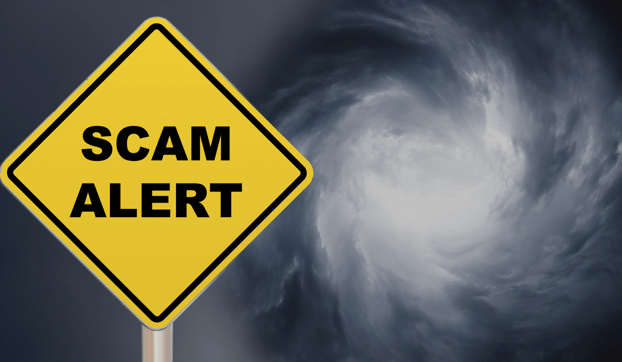
If you live in a community affected by Hurricane Ida, beware of these post-disaster scams.
Disaster Relief Charity Scams
You may start receiving donation requests through email, social media posts, texts or phone calls. These messages may tug at your heart strings, but use caution. This is a common way for thieves to scam suffering communities.
How to avoid charity fundraiser scams.
Only donate to trusted, well-known charities. Beware of scammers who create fake charities during natural disasters. Always verify if a charity is legitimate through its official website. If you have any doubts, you can check with Charity Navigator, Charity Watch, or GuideStar. You can also check with the National Association of State Charity Officials whether charities must be registered in your state and if the charity contacting you is on file with your state.
Verify all phone numbers for charities. If you need to contact a charity by phone, check the charity's official website to see if the number you have is legitimate. If you're using text-to-donate, check with the charity to ensure the number is legitimate before donating.
Do not open suspicious emails. If you receive a suspicious email requesting donations or other assistance, do not click on any links or open any attachments. Scammers regularly use email for phishing attacks and to spread malware.
Verify information in social media posts. Double-check any solicitation for charitable donations before you give. Crowd-funding websites often host individual requests for help but they are not always vetted by the site or other sources.
FEMA Imposters
After a natural disaster, scammers impersonate FEMA representatives to collect victims’ personal information and/or their money.
How to avoid post-disaster insurance scams.
Know that officials with government disaster assistance agencies do not call or text asking for financial account information, and that there is no fee required to apply for or get disaster assistance from FEMA or the Small Business Administration. Anyone claiming to be a federal official who asks for money is an imposter
According to the Federal Communications Commission, if you get a phone call about an insurance claim or policy, don't give out any personal information or agree to any payment until you can independently verify that the call is legitimate. If the caller says they're from your insurance company, hang up and contact your agent or the company directly using the number on your account statement. Policyholders with the National Flood Insurance Program (NFIP Direct) can call 1-800-638-6620.
If you applied for FEMA and you receive a phone call from someone claiming to represent the federal organization, only share your FEMA claim number over the phone. If the caller is legitimate, they’ll already have any other information they need.
If a FEMA representative shows up at your home, ask to see a FEMA-issued photo ID badge. Do not give the “FEMA rep” any of your money – or any of your personal information.
Shady repair contractors
Many so-called contractors will make the rounds of neighborhoods that have seen storm damage to offer their services to homeowners seeking repairs. They may ask for upfront payment for any work you need and then do a sloppy job or never complete their task. You won’t realize you’ve been conned until the worker has left your home with your money in their pocket.
They may also show up at your door claiming to represent a utility company you use. They’ll threaten to shut off your service if you don’t provide immediate payment for any repairs you might need.
How to avoid repair scams.
Never give policy numbers, coverage details, or other personal information out to companies with whom you have not entered into a contract. If your state requires licensing, verify that any contractor you are considering is licensed and carries adequate insurance. Ask to see proof that they indeed represent the company they claim to work for and do not make any upfront payments until you have checked out their authenticity.
Don’t let scammers make hurricane recovery harder than it already is. Use common sense. If you suspect fraud, let the FTC know at FTC.gov.
